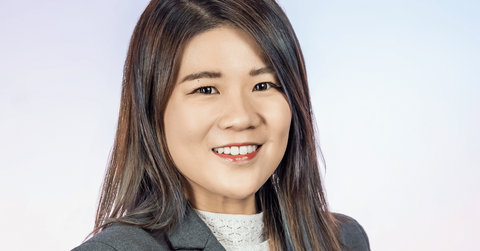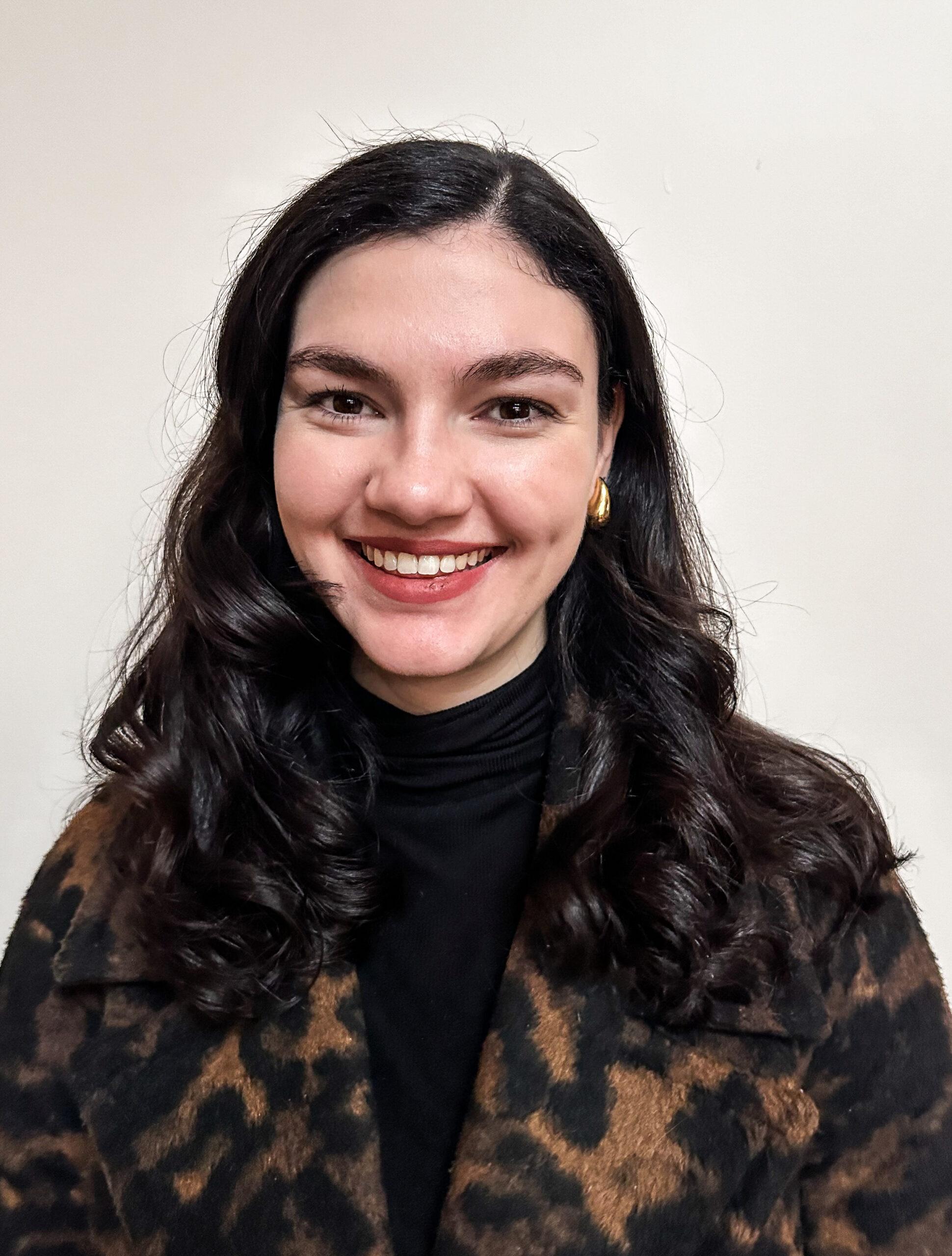When Jiayu Lin became CEO of PopSockets in September 2024, she joined the small but growing ranks of women leading major U.S. consumer brands.
Jiayu’s career journey took off after earning her MBA from Harvard Business School. However, it was her diverse experience across finance, fashion, and tech industries that truly enhanced her ability to craft successful global strategies. She honed her expertise through leadership roles at sustainable footwear innovator Allbirds, where she served as Director of Omni-Channel and Head of Commercial for China. Her subsequent experience with Maia Active further deepened her understanding of building consumer brands with cultural relevance across diverse markets.
Jiayu’s passion for PopSockets as a global brand shines through during our conversation. “We celebrate culture,” she explains, highlighting their musical partnerships and commitment to the full lifestyle experience that connects people worldwide. While acknowledging cultural nuances across markets, Jiayu emphasizes the universal elements that bind PopSockets customers together.
Looking ahead, she reveals exciting plans, such as the expansion of PopSockets into a comprehensive mobile lifestyle brand with its signature GRIP technology at its core, complemented by curated partnerships that reflect diverse passions and interests globally. She also provides advice to future leaders who are driven to spearhead change within their own industries.
Her Agenda: Tell me all about your PopSockets journey, from where you have been to where you are now.
Jiayu Lin: PopSockets was founded in 2014. Our founder, David Barnett, started tinkering and inventing PopSockets around 2010 with our very memorable Kickstarter campaign in 2012. So, long story short, we invented a category that is the phone grip and the accordion grip. We’ve sold more than 280 units, a million units around the world.
I joined the company in early 2022, first to head up our Asian-Pacific (APAC) market there, and very successfully led a 200% growth for the APAC region over two years, and more importantly, started building the brand to be more of a lifestyle brand than just a tech accessory. The founder just really saw what he wanted for the next chapter of the brand in the APAC operations led by me, and I’m just so thrilled to lead this category to the next chapter.
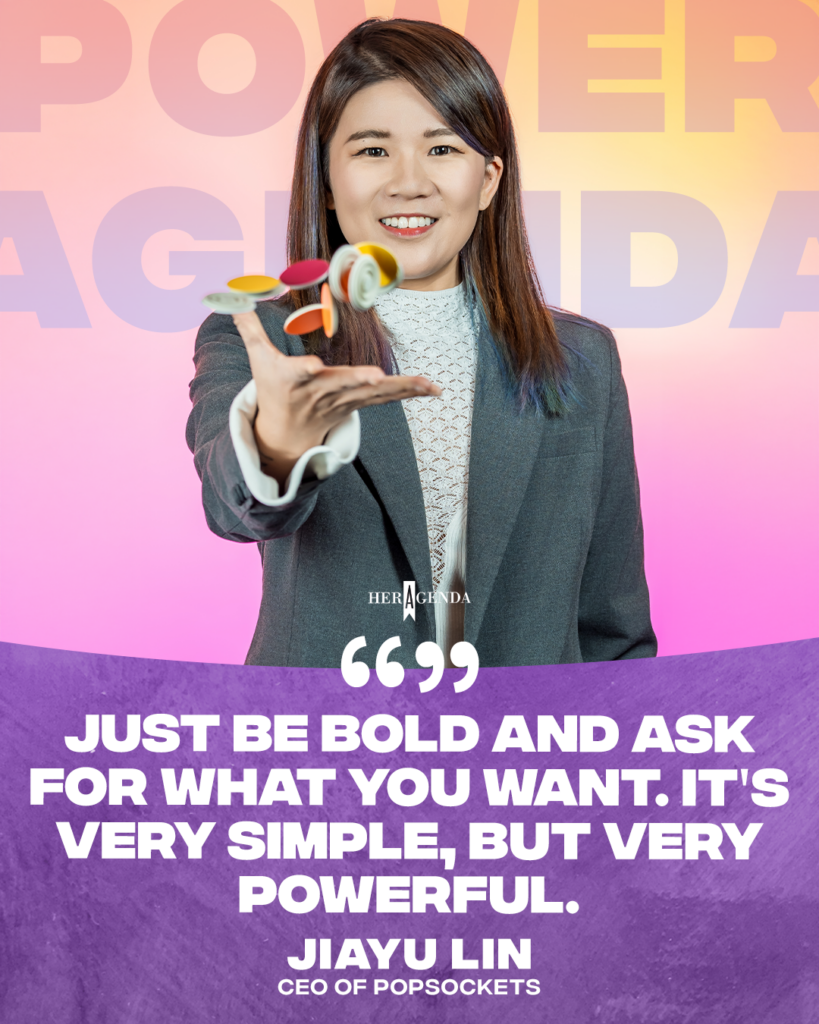
Her Agenda: What were some core strategies you used to grow the brand in APAC?
Jiayu Lin: It’s actually quite a challenging market because we didn’t and still don’t have quite the broad brand recognition of PopSockets, and at the same time, it’s a more competitive market with a lot of manufacturers and similar products in the market.
So, the overall strategy of building this brand really got us the success and the positioning of a premium phone accessory and lifestyle brand in APAC. It’s mainly through four things. One is that we have a very direct-to-consumer strategy. When we first launched in the US and other markets, we were originally more wholesale accounts-focused in order to create a broad distribution of the products.
However, we noticed that the consumer sets the pace for the frequency of product releases, but it wasn’t being implemented. So in APAC, we started focusing on having multiple product drops a month. Now it’s become a strategy for the overall global brand.
The second thing is that we really built a community of influencers and collaborators. This whole partnership strategy, you can see in the broader agenda for the whole company here. The idea is that PopSockets is a way of expressing yourself, and you want your interests and the culture you love reflected. Influencers and artists are a bridge there. So we dove into working closely with them to create designs and introduce the brand.
And then, of course, a very notable partnership is with Apple. I took our team of 15, 16 colleagues on a trip to Asia. After a very successful three-colorway, massive group launch with Apple globally, they quickly called us back wanting us to design a Peanuts Cherry Blossom collection for the APAC region exclusively. And so we did that, and the team could see that full display in Apple stores. It’s pretty cool. And the sales are going very well.
We started growing the retail environment again in Asia, where we now have a store that sells all of our products under one roof (mono-branding). It’s also a better way to showcase the brand and everything that we have to offer today because it’s not just the grips, it’s everything including wallets, power banks, the case, and the whole outfit.
And so, hands-on experience [in a retail store] is very important. And then for consumers to be able to see our whole offering in person, they can tap into different kinds of styles.
And it’s also just very impactful. Our retail stores have been very successful, both as a brand building tool, as well as just a successful commercial avenue.
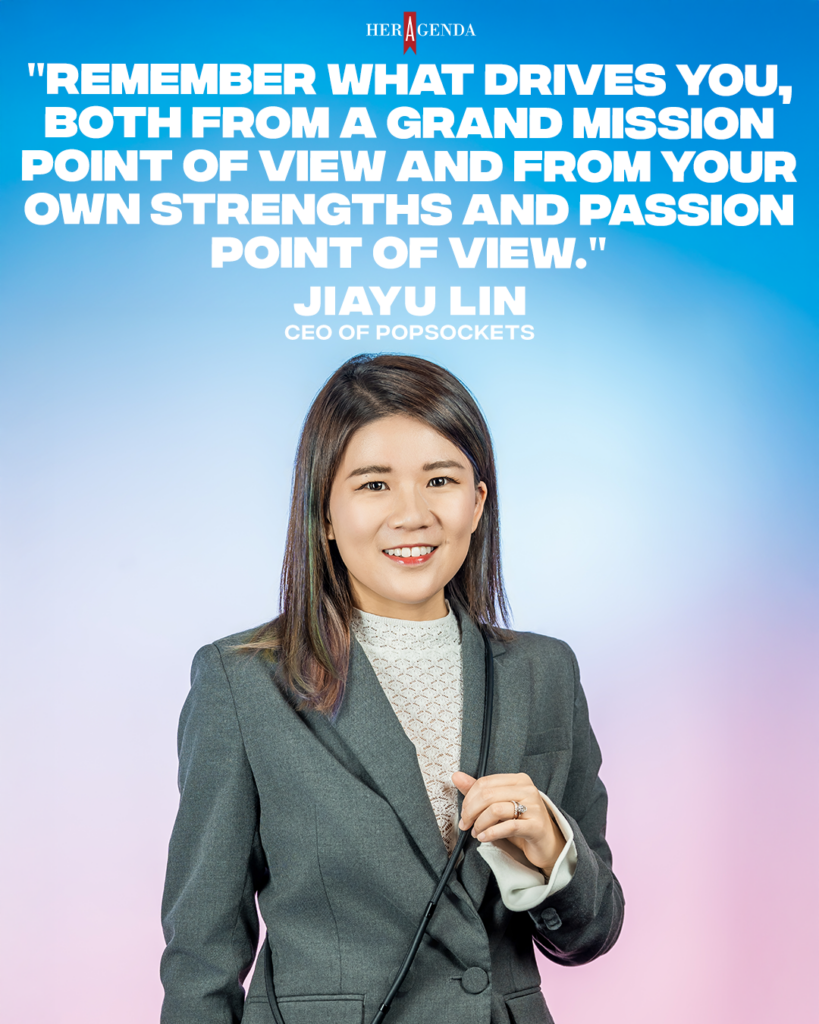
Her Agenda:What advice would you share with young women looking to lead change, whether in tech, fashion or different cultures?
Jiayu Lin:I benefited a lot from a not-so-linear career. I was in finance for a little bit, tech, and then consumer and fashion. My advice would be to try different things and accumulate those transferable skills.
I’m quite mission-driven. What motivates me is this idea of providing excellent products and experiences, and a mission. That makes people live a better life. But the important thing is that the work I focus on is not only service-oriented, but also nurtures me.
It’s very important to remember that. Remember what drives you, both from a grand mission point of view and from your own strengths and passion point of view. It was against the backdrop of this very dynamic, fast-changing world.
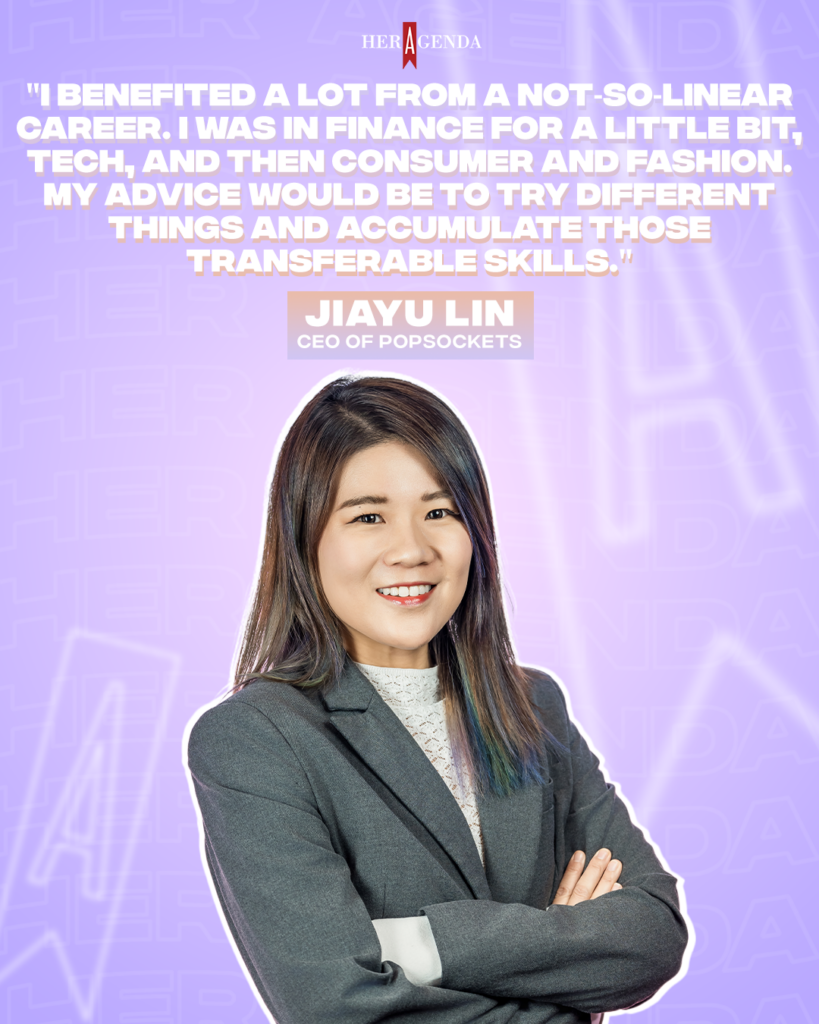
Her Agenda: What is some of the best advice you’ve been given to help you become a leader in your craft during your career?
Jiayu Lin: Very simple advice that I got from my college professor that I hold close to this day. Just be bold and ask for what you want. It’s very simple, but very powerful.
Just because we know our desires and wants, sometimes subconsciously, especially women, I think there might be this voice in our head that’s saying, ‘well, it’s not a typical path’ or ‘I might not be ready yet,’ or ‘such and such might be obstacles.’ But, it’s just very simple, say this is what I want.
I’ve met many caring leaders and female leaders on my own journey as well. And it’s very important just to be bold. I have that as a simple mantra. You know you’re ready to take a step already and the next one. You’re ready for what you are doing and what you want on the way, probably even one step further already for those people that make that move.
[Editor’s note: This interview has been edited for length and clarity.]

